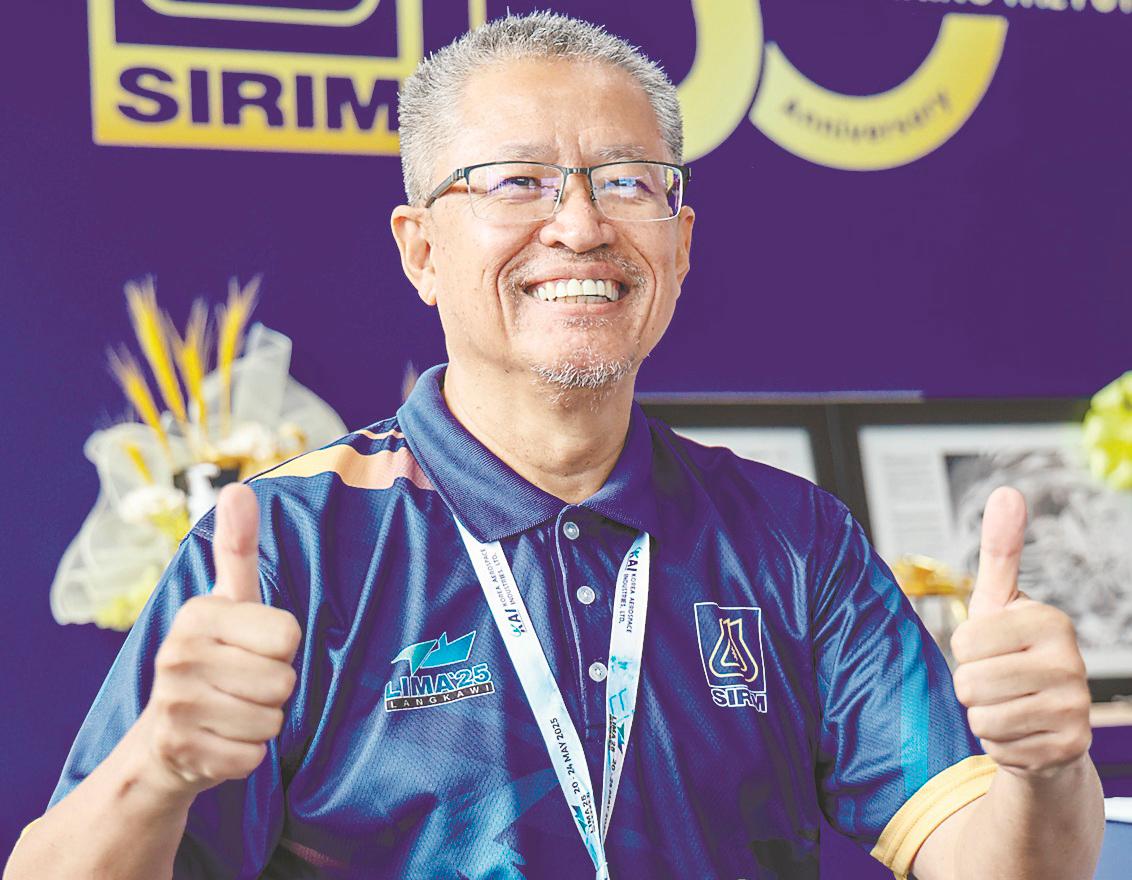LANGKAWI: Sirim Bhd aims to certify 50,000 domestic companies over the next two to three years – more than double the 20,000 local firms it supported last year – as part of its broader strategy to help Malaysian businesses expand globally, with a particular focus on tapping into the vast growth and revenue opportunities in India and China.
President and group CEO Datuk Dr Ahmad Sabirin Arshad said, “We are placing strong strategic focus on two of the world’s most populous and dynamic markets – China and India. Together, these nations represent nearly three billion people, accounting for a significant portion of the global population.
“Referred to symbolically as the ‘dragon’ and the ‘elephant’, missing out on these markets would be a substantial lost opportunity. That is why we are actively positioning ourselves in China and working towards establishing a presence in India.
“Additionally, as a multiracial nation with strong Chinese and Indian communities, Malaysia is uniquely positioned to leverage this diversity as a bridge into these ecosystems,” Ahmad Sabirin told SunBiz at the Langkawi International Maritime and Aerospace Exhibition (Lima 2025) yesterday.
Ahmad Sabirin said Sirim is accelerating its global expansion by establishing more international offices, with the broader objective of enabling not only its own growth but also supporting the internationalisation of Malaysian small and medium enterprises.
Given the limitations of Malaysia’s relatively small market, Sirim is also strategically targeting the broader Asean region – with its population of about 680 million and substantial consumer base – as a key market, he said.
Touching on the aerospace sector, Ahmad Sabirin said as Malaysia assumes the Asean chairmanship this year, efforts are under way to position local aerospace players for regional growth, with a vision to expand beyond domestic government contracts and establish the country as a key aerospace hub in Southeast Asia – an ambition supported by ongoing collaboration between agencies such as Sirim, the Defence Ministry and regional investment partners.
“This year, Sirim is advancing its commitment to standard and technology diplomacy by extending its services to Asean member countries, including several least developed nations. Acknowledging the disparities within the region, Sirim aims to foster a more inclusive and vibrant ecosystem, with Malaysia taking a leadership role.
“Sirim hopes this initiative will align with the prime minister’s efforts to champion regional cooperation in technology, standards, and human capital development.
“In line with global sustainability goals, Sirim continues to position itself as a key enabler in Malaysia’s net zero ambitions –particularly through its long-standing work in sustainable aviation fuel (SAF),” Ahmad Sabirin said.
He added that Sirim is in discussions with Petroliam Nasional Bhd to explore the potential of utilising locally sourced biomass for the production of SAF, recognising its critical role in advancing Malaysia’s net-zero carbon by 2050 goal.
With an emphasis on increasing SAF adoption across sectors, including national defence, this initiative positions Malaysia as a potential pioneer in the global SAF framework, leveraging its readily available and cost-effective raw materials to support both domestic use and international supply.
“Currently, we are purchasing SAF at a higher cost. However, by shifting processing capabilities to our own country, we can export higher-value products instead of importing them, ultimately improving our trade balance through more strategic value-added production and exports,” Ahmad Sabirin said.
Last year, Plantation and Commodities Minister Datuk Seri Johari Abdul Ghani said Malaysia planned to start producing SAF in 2027, with an initial production capacity of one million tonnes per year.
The production capacity will gradually increase based on factory output and feedstock availability, the minister told parliament.
Malaysia, the world’s second-largest palm oil producer, is in a strategic position to become one of the world’s leading SAF producers, he was quoted saying in a Reuters report.
In April of this year, Natural Resources and Environmental Sustainability Minister Nik Nazmi Nik Ahmad said Malaysia was set to boost its role in the global clean energy sector with the development of a world-scale SAF refinery.
The project is a result of a strategic partnership between Bin Zayed International and local biofuel pioneer FatHopes Energy.
Describing the partnership as a “game-changer” for the country’s energy and aviation sectors, Nik Nazmi said this investment would serve as a catalyst for far-reaching transformation.
“It heralds Malaysia’s arrival as a serious player in the global clean energy and low-carbon economy,“ he said at the project’s memorandum of understanding signing ceremony.
Asked about examples of Sirim’s research and development initiatives in the electric vehicle space, Ahmad Sabirin said, “For EV, we have the most complex system for the industries. Before implementing an EV system in Malaysia, patent approval is required, and it must be validated by the country’s designated petroleum and energy research institute.
“Following patent approval, all EV systems must undergo testing and certification by Sirim QAS, while battery development and testing are handled by Sirim Research – forming a comprehensive ecosystem to support national battery innovation.
“In parallel, Sirim is actively developing standards for hydrogen, particularly as several states begin hydrogen-related initiatives.
“Ensuring safety remains a top priority, with clear standards and consistent compliance frameworks being established to guide industry practices. Currently, much of the industrial focus is centred on advancing the EV sector,“ Ahmad Sabirin said.









